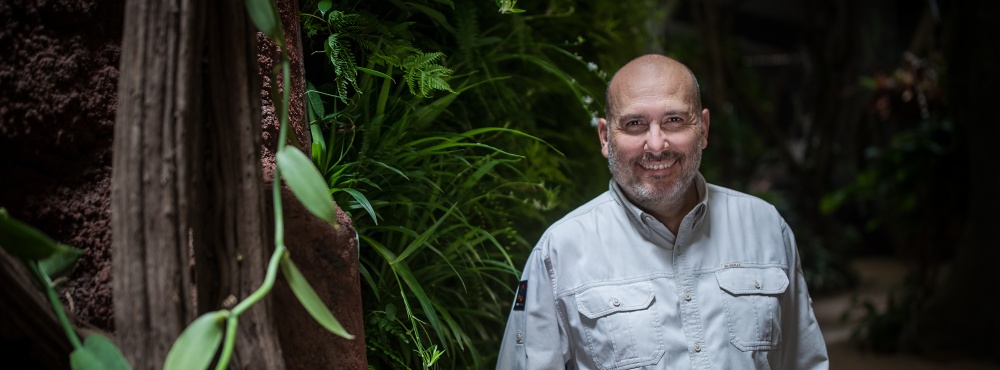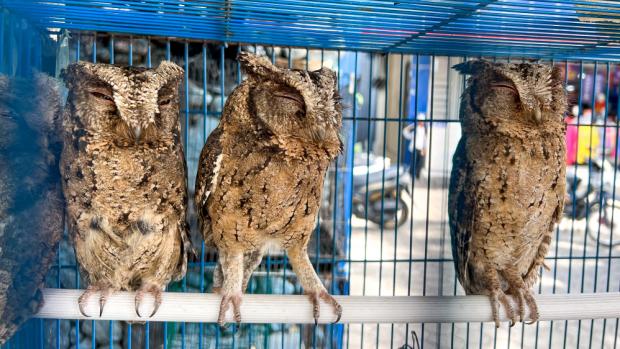Unfortunate Scops Owls and Harry Potter

During my brief visit to Indonesian Jakarta I held several meetings, experienced a 5.6 magnitude earthquake and also quickly walked through two animal markets: the smaller street market Jatinegara and the larger Pramuka with a “department store” with four floors full of shops with thousands of bird cages.
 Foto: Miroslav Bobek, Zoo Praha
Foto: Miroslav Bobek, Zoo Praha
If in our country it was said that a true man should build a house, plant a tree and beget a son, then in Indonesia the adequate fulfilment of life included a house, a wife, a horse, a dagger and – a bird. Therefore, cage breeding of birds is widespread there until today, which unfortunately poses an enormous threat to some songbird species. There was even talk of an Asian Songbird Crisis, and also European zoos joined in activities to counter it.
I visited Indonesia for the first time, and although the animals I saw at both markets were often kept in miserable conditions, I at least perceived as positive the fact that many of them were species commonly bred almost all over the world rather than representatives of local fauna captured in the wild. These were there as well, and quite numerous, only I had expected to find even more.
Among South Asian birds obviously originating in the wild the owls aroused my greatest pity. Besides three barn owls we saw about thirty scops owls of the genus Otus (it was impossible to determine them more precisely as there are many similar species living in the area, one of them described only this year). At the same time keeping the owls at home – despite breeding songbirds – is probably not so much a matter of ancient traditions, it is more likely to be a recent novelty.
The researchers Vincent Nijman and Kimberley Anne-Isola Nekaris from Oxford Brookes University drew attention to this fact in their paper published in 2017. They published data in it, showing that while before 2002 the share of the owls at Indonesian markets was less than 0.06 per cent, after 2008 it was seven times higher. This publication of theirs arose enormous media interest, mostly because they speculated, based on their findings, whether it was a delayed Harry Potter effect. In another words, if the interest in owls was provoked in Indonesia by books and movies about the little wizard.
Nijman and Nekaris did not actually come to an unequivocal conclusion on Harry Potter’s “degree of guilt”. A significant role in the growing market for owls was surely played by the rapid introduction of the Internet during the abovementioned period, and formation of interest groups focusing on owls. However, as I could see for myself, it is a problem that persists unabated – and I think it deserves at least a part of the attention given to songbirds.
ZOOPRAHA.CZ
Contacts
- The Prague zoological garden
U Trojskeho zamku 120/3
171 00 Praha 7
Phone.: (+420) 296 112 230 (public relations department)
e-mail: zoopraha@zoopraha.cz
Others








